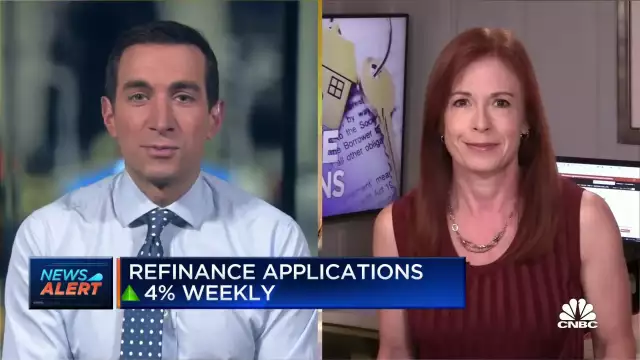How to Refinance Mortgages on Investment Properties?
Refinancing a mortgage on an investment property can be a great way to lower your monthly payments, increase cash flow, or even access cash for other investments. However, the process can be a bit more complicated than refinancing a primary residence. Here are the steps to take when refinancing an investment property.
Review Your Credit Score
The first step in refinancing an investment property is to review your credit score. Lenders will typically require a higher credit score for investment properties than for primary residences. Make sure your credit score is high enough to qualify for the best rates and terms. If your credit score is not where you want it to be, take steps to improve it before applying for a refinance.
Gather Financial Documents
Next, gather all of the financial documents you will need to apply for a refinance. This will include things like your income statements, tax returns, and bank statements. You will also need to provide proof of ownership of the investment property, such as a copy of the deed.
Shop Around for Lenders
Not all lenders offer investment property refinance loans, and those that do may have different terms and rates. It is important to shop around to find the best lender for your specific situation. Be sure to compare rates, fees, and terms before making a decision.
Appraisal and Title Search
Once you have found a lender and are ready to apply for a refinance, the lender will require an appraisal of the investment property. The lender will also perform a title search to ensure that there are no liens or other issues with the property.
Close on the Loan
After the appraisal and title search have been completed, and all of the necessary documentation has been submitted, it is time to close on the loan. This will involve signing a number of legal documents and paying closing costs.
Monitor Your Cash Flow
Once the refinance is complete, it is important to monitor your cash flow to ensure that the refinance is providing the financial benefits you were expecting. Keep track of your monthly payments, cash flow, and return on investment to make sure the refinance is working for you.
Overall, refinancing a mortgage on an investment property can be a great way to improve your financial situation. However, it is important to do your homework and shop around for the best lender and terms. By following these steps, you can ensure that the refinance process goes smoothly and that you get the best deal possible.
Frequently Asked Questions
Can I refinance an investment property that is currently being rented?
Yes, you can refinance an investment property that is currently being rented. However, lenders may require proof of rental income and may also use a slightly different set of guidelines when evaluating the loan application.
Is it possible to refinance an investment property with a low credit score?
It may be more difficult to refinance an investment property with a low credit score, but it is not impossible. Some lenders may be willing to work with borrowers who have lower credit scores, but the terms and rates may not be as favorable. To increase your chances of being approved, it is a good idea to improve your credit score before applying for a refinance.
How long does the refinance process take for an investment property?
The refinance process for an investment property can take anywhere from a few weeks to a few months, depending on the lender and the complexity of the loan. In general, it will take longer than refinancing a primary residence.
What are the costs associated with refinancing an investment property?
The costs associated with refinancing an investment property can vary depending on the lender and the specific loan. However, some common costs include appraisal fees, title search fees, and closing costs. Be sure to ask the lender for a breakdown of all fees associated with the loan before making a decision.
Can I refinance an investment property that is underwater?
An underwater property is a property that is worth less than the outstanding mortgage amount on it. Refinancing an underwater investment property can be difficult, but it may be possible if you are able to find a lender who is willing to work with you. However, you may need to bring cash to the closing table to refinance an underwater property.
Can I cash out some of the equity in my investment property during a refinance?
Yes, it is possible to cash out some of the equity in your investment property during a refinance. This is called a cash-out refinance. However, lenders may have stricter guidelines and requirements for cash-out refinances on investment properties.
Should I refinance my investment property if interest rates are dropping?
Interest rate plays a major role in refinancing, whether you're refinancing your primary residence or an investment property. Typically, it is a good idea to refinance if interest rates are significantly lower than the rate on your current loan. However, it's important to consider the costs associated with refinancing and the potential benefits before making a decision.
What are the differences between refinancing a primary residential and an investment property?
There are several differences between refinancing a primary residence and an investment property:
- Credit Score: Lenders typically require a higher credit score for investment properties than for primary residences.
- Income and Rent: Lenders may require proof of rental income and will use a slightly different set of guidelines when evaluating an investment property loan application.
- Down Payment: Investment properties often require a higher down payment than primary residences.
- Interest Rate: The interest rates for investment property loans are typically higher than the rates for primary residence loans.
- Occupancy: Investment properties are not occupied by the borrower, and lenders may have stricter guidelines and requirements for investment properties that are not owner-occupied.
- Cash-out Refinance: Lenders may have stricter guidelines and requirements for cash-out refinances on investment properties compared to primary residences.
- Closing costs: There may be more costs associated with refinancing an investment property, such as appraisal fees, title search fees, and closing costs.
- Underwriting: Lenders may have stricter underwriting guidelines for investment properties, which may make it more difficult to qualify for a refinance.
It's important to keep these differences in mind and to shop around to find the best lender and terms when refinancing an investment property. It may also be a good idea to work with a mortgage broker who specializes in investment properties to help you navigate the process.
Pros and Cons of Refinancing an Investment Property
Pros of Refinancing an Investment Property:
- Lower Monthly Payments: Refinancing an investment property can lower your monthly mortgage payments, freeing up cash flow for other investments or expenses.
- Lower Interest Rate: By refinancing, you may be able to secure a lower interest rate on your investment property loan, which can save you thousands of dollars over the life of the loan.
- Cash Out: You can take cash out of your property by refinancing. This can be used to invest in other properties, improve your existing property, or pay off other debts.
- Extend the Length of the Loan: You can refinance to a longer loan term which can lower your monthly payments, but will cost you more interest over time.
- Tax Benefits: The interest paid on your mortgage loan can be tax-deductible.
Cons of Refinancing an Investment Property:
- Closing Costs: Refinancing an investment property can be expensive, as it typically involves paying appraisal fees, title search fees, and closing costs.
- Credit Score: If your credit score is low, you may not qualify for the best terms and rates when refinancing an investment property.
- Underwriting: Lenders may have stricter underwriting guidelines for investment properties, which can make it more difficult to qualify for a refinance.
- Longer Process: The process of refinancing an investment property can be longer than refinancing a primary residence.
- Interest: Even though the interest rate may be lower, you will be paying interest for a longer period of time, which can increase the overall cost of the loan.
It's important to weigh the pros and cons of refinancing an investment property and to consult a financial advisor before making a decision. Additionally, It's important to do the math and consider the long-term financial implications of refinancing.



